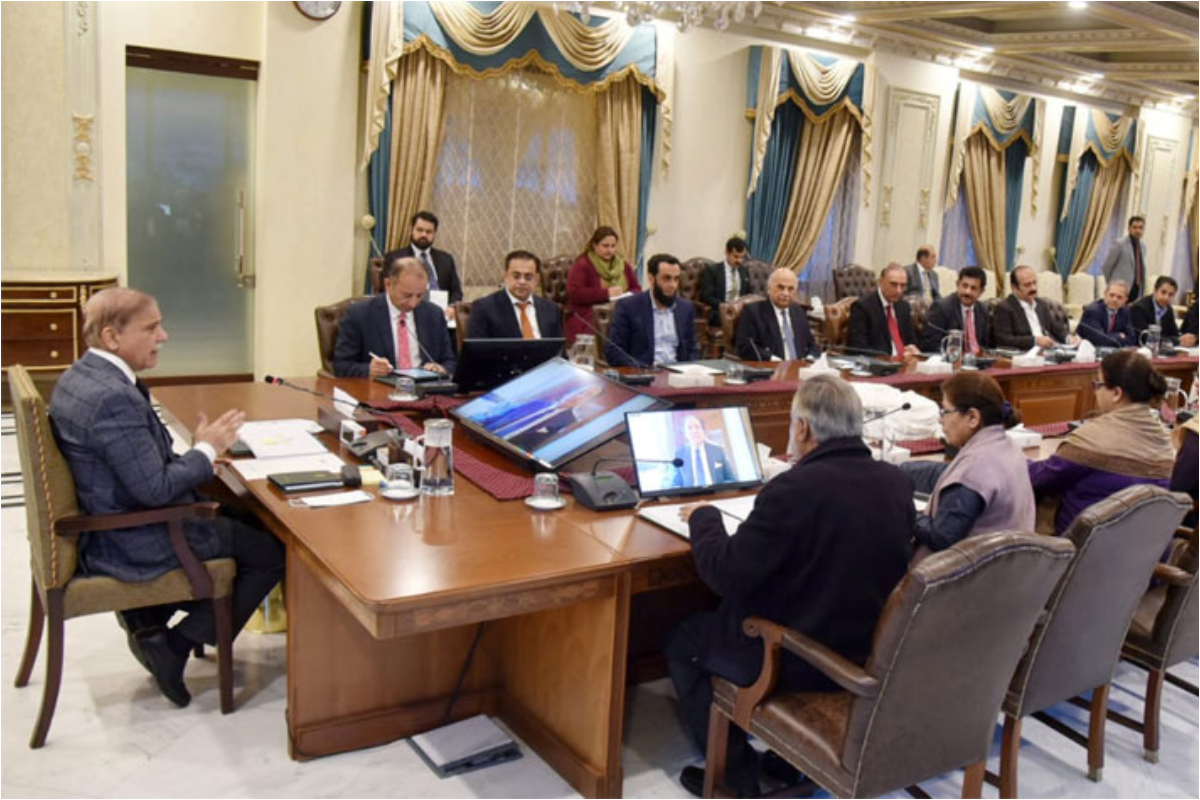PM seeks final implementation schedule for PIA’s privatization
ISLAMABAD: Prime Minister Shehbaz Sharif sought a final implementation schedule for the privatization of Pakistan International Airlines (PIA).
He was chairing a high level meeting on the PIA’s privatization and restructuring of the Federal Board of Revenue (FBR). The prime minister directed the Ministry of Privatization to present the schedule about the PIA’s privatization in the next two days after taking necessary steps. He warned that no laxity and irresponsibility would be tolerated and complete transparency should be ensured in all phases of privatization.
During the meeting, the participants reviewed the progress on the privatization of PIA and considered the next phases of the process. The proposed roadmap for the system of automation of FBR was also approved.
The participants considered the proposals for transparency in the system of FBR, infrastructure reforms, increase in taxes through incentives, eradication of corruption and smuggling, separation of inland revenue and customs departments, and decrease in tax rates.
PM Shehbaz said that the roadmap should be implemented with clear-cut timelines. The targets should be determined realistically but the implementation of reforms should be the fastest in the region, he said, adding that “we do not have time to waste as it is a matter of shining future of Pakistan and economic recovery”.
The meeting sought recommendations from the Ministry of Law for resolution of legal disputes in the pending cases of tax recovery and revenue in the courts. PM Shehbaz instructed that the hurdles in the recovery of Rs 1.7 trillion stuck-up taxes should be removed with the resolution of legal disputes.
He also directed the Ministry of Law to present proposals to create a legal department in the FBR, for preparation of drafts according to law and hiring of services of lawyers. He said six to seven percent economic growth was possible with the implementation of reforms, adding that investment was needed to modernize the revenue and tax system.
“We want to bring a system of taxation based on incentives. We desire to reduce the burden of taxes but the business community has to help by playing a role for the progress of people through social service.”
The prime minister asked that an effective third party audit system should be ensured, which so far could not be done. He said that tax system with high quality was in vogue in the world and “we also have to improve our system”.
He urged that all exemptions in taxes should be thoroughly reviewed. He was of the view that Pakistan would not have been left behind in the world if small and medium enterprises were promoted. “We could not promote our small and medium industry in the last 40 years. Now is the time to expand this sector.”
Former caretaker minister for finance Dr Shamshad Akhtar gave a detailed briefing about the restructuring of FBR, automation and on different aspects of the loopholes in the collection of taxes and the future strategy.
She informed the meeting that Pakistan’s tax to GDP was 9.5 percent which was low as compared to other countries and it was very necessary to increase it for progress and development. She said that 55.6 percent of the population did not pay any taxes while only 3.3 percent were paying taxes. Only 200,000 people were giving 90 percent of the taxes.
She said that recovery of Rs 1.7 trillion of taxes could not be made because of the legal process. She highlighted the recommendations for restructuring of the Customs Department on the pattern adopted by other countries and reforms in the legal and regulatory framework. The Federal Policy Board should prepare a long-term tax plan for the continuity of policy, she added.


